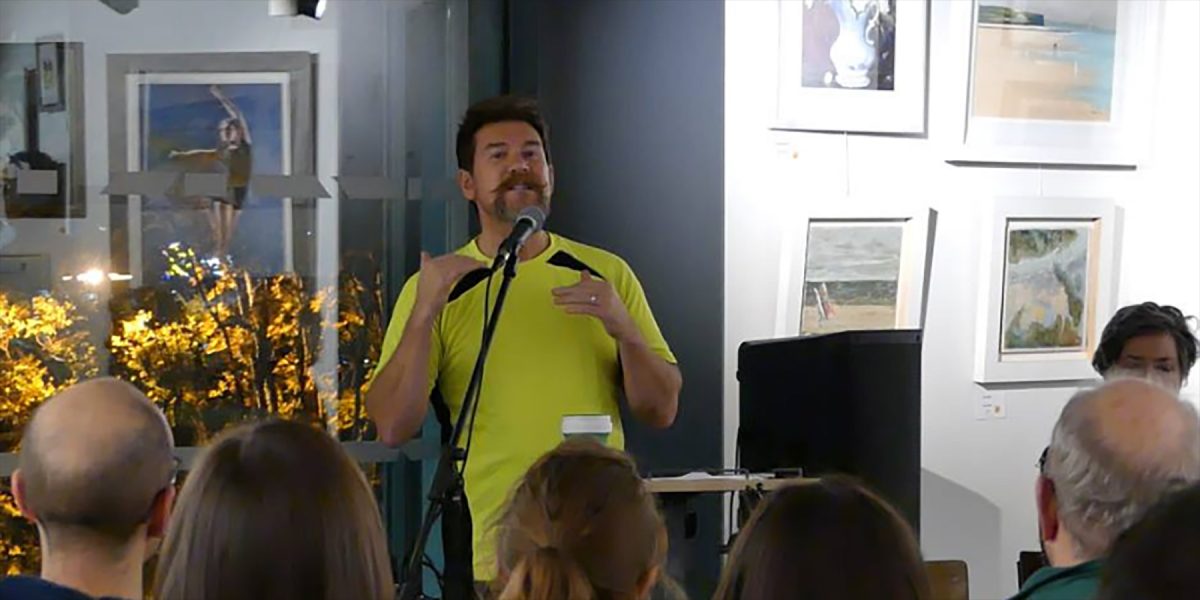
Tackling unsustainability, with Professor John Barry: ‘What is in it for us?’ and the importance of creating a buy-in (2/2)
03/02/2020
In Part Two of our feature with Professor John Barry, we discuss; NI’s prevalent fuel poverty issue, why individualised responses to climate change are not enough, and how ultimately creating a buy-in for people will be key to showing citizens how they can benefit from the renewable transition, and become an owner of energy, instead of a passive consumer.
Q1. Northern Ireland’s progress on greening our economy, environment and ultimately our behaviours seems contradictory. On one hand, we are on target to meet our goal of 40% of electricity from renewable energy by 2020, yet we have one of the highest rates of fuel poverty in Europe. Is it a case that we are simply not measuring what matters? And what do you think is needed to cause a shift towards placing sustainability before profit?
The issue of fuel poverty in Northern Ireland is an absolute moral abomination. We are a wealthy society, but the problem is that we are so oil-dependent, and the most oil-dependent part of the UK and Ireland, particularly in terms of home heating which rises to 60% dependency in rural areas. Furthermore, oil is a particularly volatile fossil fuel and when the price of oil goes up, many are in danger of going into fuel poverty. We also have a problem with our housing stock, in that we have some of the worst, thermally inefficient housing stock in Europe.
Part of a Green New Deal and a ‘Just Transition’ is how the state is to manage, for example, a programme of retrofitting public and private housing stock, to bring it up to standards so that people are not heating the street. In fact, colleagues here at Queen’s have conducted research, where they were out on the streets of Belfast with a thermal monitor, identifying all this red leaking out of people’s windows because of bad insulation. So why are we not investing in providing local jobs to people, to retrofit our homes? This would reduce greenhouse gas emissions, keep people out of fuel poverty and increase their health and quality of life.
Part of the energy transition is almost the complete electrification of our lives, in terms of heating and transportation. So why are we locking our citizens into a carbon-based, home heating system, whether it is gas, oil or coal? We should have a state-managed approach of bringing our abundant electricity from renewable sources to the people who need it. Yet, we are producing renewable electricity that is most likely, being consumed predominantly by businesses. Why is this not going to help meet our local communities’ needs? Because I think that this is what is needed in terms of a just energy transition.
Part of why I think people object to renewable energy is that they ask, what’s in it for us? If we had a programme outlining how the state is providing the capital at cheap cost and legal expertise to enable farmers and local communities in rural areas to own, manage and control renewable energy – I think we would overcome a lot of opposition. And I have the evidence, as I did a piece of research with a colleague, Professor Geraint Eilis over 10 years ago. We were looking at why people were objecting to wind farms in North Antrim. It was a very complex issue, where some of it was aesthetic and so on. However, most of the feedback was that people felt, well what’s in it for us? There must be a buy-in for local people, so how can every citizen benefit from the renewable energy transition, and become an owner, instead of a passive consumer? I think that the ability for local communities to own and control renewable energy sources, particularly in rural areas, would overcome a lot of the opposition. Not all of it, but quite a bit of it.
Q2. According to the Committee on Climate Change (CCC), agricultural land accounts for over 75% of Northern Ireland’s land area. It is evident that we need more local, regional and national conversations about our agricultural future and land management practices. What would you like to see those conversations prioritising?
There must always be a balance between the capacity of the land to provide food and other benefits to society. I think that a lot of our farming community has become locked into an industrialised, globalised system, where their margins are declining. They are becoming increasingly dependent on fossil fuels, fertilisers and an industrialised system of agriculture. I think we need to balance that now, with the need to decarbonise the agricultural system. This is particularly important on this island because even down south, agriculture is one of the biggest sectors that emits greenhouse gases. Indeed, the methane from cows is over 20 times more potent as a climate-changing gas than carbon dioxide. So, the cattle herds in Ireland and Northern Ireland are a major issue that we are going to have to get to grips with, where we have a sustainable agricultural system that strikes a balance between the need for farmers to have a decent livelihood, in a way that is reducing our use of carbon, reducing fossil fuel inputs and reducing pollution. My proposal is that we must move towards a system of agro-ecology and consider different ways of producing food that is less carbon and environmentally intensive.
Furthermore, we need to plant more trees. Rewilding parts of our rural landscape will help repair our damaged ecosystems, because the issue does not only concern climate and energy, but also the ecosystem destruction that we have seen both here, and across the world. So for me, these would be the broad outlines: how we grow food in a way that is less carbon-intensive and ecologically friendly, that we are rewilding and repairing damaged ecosystems by bringing back habitats of creatures and plants that are under stress, and finally, that we are finding ways that we can use the land to farm carbon. We should be paying and finding methods, in which our farming communities are getting a decent wage out of sequestering carbon from the atmosphere, through things like planting native species of trees and other forms of ecological restoration. However, for me, whilst the mass planting of trees is not the silver bullet, and it is not going to solve the climate crisis, it is the only form of geoengineering that makes sense and is morally and technically legitimate.
Did you miss Part One of our feature with Professor John Barry? Take a look at it here:

